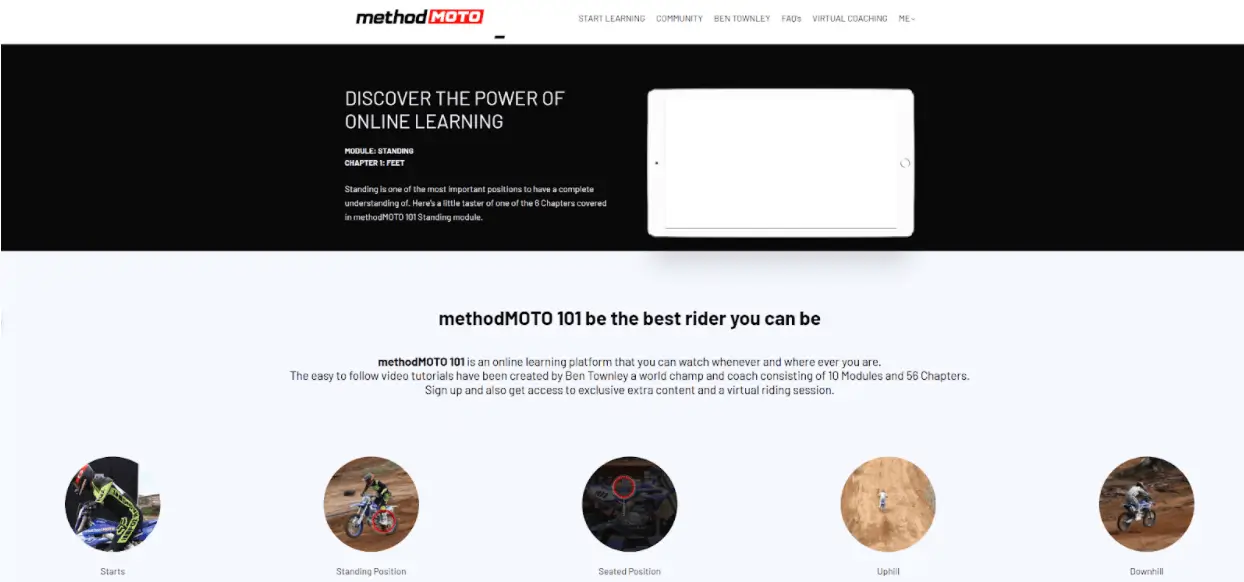Table of Contents
As a coach, you must have given tons of advice to your clients: how to be happier, healthier, successful entrepreneurs, better parents… you name it. Now it’s your turn to get some advice on how to grow your coaching business, improve your services, and increase your impact.
But first, let’s see where the coaching industry stands at the moment, so you can better understand whether considering expansion makes sense in the first place.
The coaching industry has been growing rapidly over the past few years, and it’s only expected to continue on this upward trajectory. In fact, coaching is both a popular and lucrative occupation. The average rate of a life coach is at $31 per hour, while an executive coach charges a whopping $250 per hour.
And guess what – online coaching isn’t doing too bad itself either. Therefore, whether you are a seasoned coach with a solid client base or a new professional, here’s a thought: start selling coaching online! Because the business opportunity is real – and big.
In this comprehensive guide, we’re sharing actionable tips on how to sell coaching online. We discuss how to build an online coaching business by creating your own online academy. A place where you’ll offer real-time coaching, self-paced online courses, and useful resources for your coaching clients.
You’ll also find out how to set the price for your online coaching packages, tips to promote your academy, and common mistakes to avoid. And finally, you’ll get a brief overview of our powerful LearnWorlds features that will elevate your coaching programs to a true learning hub.
We hope we got you excited – let’s get started!
Table of contents
- 1The Benefits of Selling Coaching Online
- 2Types of Coaching, Business Models, and Modalities
- 3How to Design an Online Coaching Program That Sells
- 4How to Set the Right Price for Your Online Coaching Services
- 5How to Promote Your Online Coaching Program
- 6Top Mistakes Coaches Make and how to Avoid Them
- 7Why Choose LearnWorlds to Build Your Coaching Business Online
1. The Benefits of Selling Coaching Online
Perhaps you still don’t see the point in selling coaching programs online. Especially if you have a successful business with your existing clients. But here are some arguments that will make you reconsider and get onboard. (Hint: it’s not all about the money!)
A Smart Way to Enter the Coaching Business
Have you just finished your coach training and are wondering how to sell yourself as a coach? Then building an online coaching course could help in that direction. Think of it as a portfolio you can use to attract both online and offline clients. In your online coaching course, you showcase your skills and knowledge when you don’t have much experience to speak of. Selling coaching online is also low cost compared to renting a space to receive clients and buying office equipment.
Wider Reach
There’s only so much you can do offline to grow your coaching business, even if you have been around for some time. Selling coaching online is a surefire way to reach a considerably wider audience, spread the word about your coaching services, and increase your clientele.
On top of that, while people today are eager to grow, they often lack time to invest in their personal or professional development. Perhaps they’re too busy, or they can’t find a coach they like in their area. This makes them think twice before committing to in-person coaching, which comes with the usual inconvenience of commuting. Online coaching removes this barrier, allowing more people to receive top-notch coaching from the comfort of their homes.
It’s also a great opportunity to create a scaling business. If you want to expand your coaching services and start an LLC in your state, with an online course you’ll be on the right track to do so.
Affordable Coaching Services
People seeking coaching services want to make a change in their lives. Changes, however, don’t happen overnight. It will be long before your clients start to form new habits, embrace a new way of thinking, and start seeing tangible results. Coaching is a long process, leading to forbidding costs for some people.
By selling coaching online, you can combine self-paced courses with real-time coaching sessions. You will also have lower operating costs, which is another reason you’ll be able to set lower prices. At the same time, the cost of commuting for the client is eliminated, thereby making your services more affordable overall.
Recurring Passive Income
Selling coaching online is a brilliant way to increase your income now and create a source of recurring passive income. By creating your online academy, you will keep generating revenue from coaching courses you have only built once. Nonetheless, you should frequently update your courses with videos of your latest events and other learning material so that they remain valuable, relevant, and fresh.
Greater Impact
Let’s not forget that all types of coaching aim to bring positive change in the client’s personal or professional life. If money isn’t your only motive, and if you care about leaving a positive mark, then this is the way to do it. Online coaching, being more affordable and accessible, enables you to touch and improve more people’s lives than you could ever do working offline.
Establish Yourself as an Authority
Selling coaching online is a powerful marketing strategy to establish yourself as an authority. Creating an online coaching academy shows an extraordinary commitment to your profession and passion for serving your clients right. It’s an effective way to demonstrate your knowledge with a power move that will immediately put you a cut above the competition.
Large Events Will be Easier to Manage
Imagine if people from every corner of the earth attended your events. And now imagine putting together an event like that. If you’re already an established figure in the coaching business, you must have held large-scale events. So you know that the logistics behind such events are costly and nightmarish.
By creating an online coaching academy, you’ll be able to organize seminars and workshops stress-free. And, you can scale them to the extent that wouldn’t be possible had they taken place on site. By hitting the record button, you are at the same time creating valuable content for your academy.
Enhanced Coaching Services
You don’t need to think of an online coaching academy only as an alternative. Online can very well complement in-person coaching. In other words, you can continue to work full-time with your offline clients. Via your online academy, you can offer them additional material they can access for life, like eBooks and recorded events. This is a very flexible solution if you don’t want to shift your priorities and prefer to work mainly offline.
Higher Client Acquisition
In a field as competitive and crowded as coaching, gaining new clients is a challenge. There are a lot of competent coaches out there, with competitive prices, making attractive promises. How can you top that?
You know how. Offering an online academy with resources and tools your clients will have access to for life is a proposition that a) doesn’t come every day, b) will differentiate you from competition in a big way, and c) is hard to say no to!
2. Types of Coaching, Business Models, and Modalities
There are so many types of coaching today that it’s hard to keep up with them all! So let’s see the umbrella categories with some examples.
Coaching is also divided into two categories depending on who you sell coaching to.
Of course, one doesn’t exclude the other. You can choose to work both with businesses and individual clients if you wish to, no matter your coaching niche.
Regarding modalities, coaching can take place in either one of the three following ways:
Why are we telling you this? To show you that no matter your coaching niche or business model, you can always sell coaching online. Even if you offer coaching that requires a more hands-on approach, like sports coaching.
Take the example of the successful MethodMOTO Academy built with LearnWorlds, where riders can find tons of tips to improve their techniques!

3. How to Design an Online Coaching Program That Sells
Time to cut to the chase and show you how to create and sell coaching online. Following these 6 steps, you can finally start online coaching and sell your advice.
Step 1: Understand Your Audience
All entrepreneurs, including coaches, must conduct audience research before making any type of change in their business. Audience research is the best way to understand who your target audience is. If you have been in the coaching business for a while, obviously you know your clients’ profiles. But if you haven’t, take note.
Profession, age, family status, and income are all essential demographics you need to consider to create content for your online course and set the right price. Generation Z, for example, prefers social learning. This means that you should emphasize initiating online discussions and group activities.
The best place to search for this information is social media. Join relevant groups to find out what your prospective customers talk about, what their pain points are, and what they want to achieve. You can also create a small questionnaire for each prospective client, so you can gradually collect information and have a clearer picture.
Step 2: Define Your Learning Goals and Objectives
Next, you need to define the learning objectives for your online course (or courses). A learning objective is what the client should be able to do after they complete their program. Essentially, they are your Unique Value Proposition; they give clients a reason to join your online program. Learning objectives need to address the client/learner directly and be brief, specific, and realistic.
Let’s say you’re offering coaching on time management. Your learning objectives should look something like this:
After completing your coaching program, you’ll be able to:
Step 3: Pick an all-in-one Course Creation Platform
Chances are that your expertise doesn’t lie in course creation and much less in website development. As such, you might get tempted to sell coaching online through a course marketplace. In reality, that’s just a way to get lost among hundreds of similar courses and lose a good part of your profit too.
Instead, it’s best to start your own online school. By choosing a user-friendly platform, like LearnWorlds, you can easily build your online coaching programs and create a beautiful website. This way, you’ll have full authority over your online coaching business.
Step 4: Populate Your Online Coaching Course With Engaging Content
💡 Disclaimer: no instructional design knowledge required! The following types of content are tried-and-tested and are known to engage learners while maximizing knowledge retention.
Step 5: Offer a Certificate
Offering a certificate makes a lot of sense, especially in business or soft skills coaching. A certificate adds value to your offering, as clients can showcase it in their resumes and enhance their employability. As such, a certificate is also an effective marketing tool to attract clients and a legitimate reason to set a higher price for your courses.
Step 6: Create Your Coaching Website
Now that your course is ready, time to build the exterior, i.e., create your academy’s website. If you’re wondering how to build a coaching website, then you’ll be happy to hear what’s coming next.
LearnWorlds Site Builder allows you to create a professional-looking website even if you have no experience in web development and coding at all (we assume that you don’t). Choose among different templates and other customizations, and your website will be ready before you know it.
With the website development problem solved, you just need to make sure you do the following:
4. How to Set the Right Price for Your Online Coaching Services
You’re here because you wanted to learn how to make money through online coaching, so let’s talk money now. We have already discussed that you can make a lot of money selling coaching online. Before setting a price for your online coaching services, consider the following:
The common tiers of online course pricing are the following:
5. How to Promote Your Online Coaching Program
To get your online course business off the ground, a lot of work must take place, both online and offline. We have tons of advice about how to launch an online coaching business, so let’s dive in. Without further ado, here’s how to promote and sell a coaching program online:
Social Media Marketing
Social media marketing is very effective when done consistently. Start with the following small, careful steps, and soon you’ll start to see results and sell online coaching:
SEO Optimization
Optimizing your academy’s website for search engines will help increase online visibility and reach a wider audience. A few SEO elements to pay attention to are the following:
If you’re curious to learn more, we have created the ultimate guide on SEO optimization for online courses!
Affiliate Marketing
Affiliate marketing works by offering a commission to third parties that promote your business or product and bring you referrals. In this case, your affiliates could be your existing clients or even coaches specialized in a similar niche that refer their clients to you for further coaching.
Email marketing
Email marketing remains a very effective communication strategy that enables you to engage current clients. You can use email to inform clients about upcoming courses and events, communicate current offers, and share interesting news. Email marketing is also very effective in reaching out to prospects.
Social media once again plays a crucial role in building and expanding your email list, whether you try to target new clients through paid ads or organically. Networking and word-of-mouth marketing can also help you build your mailing list if you are a new professional.
Once you have built your mail list, use an email marketing tool to set up automated email sequences that reach your audience at the right moment in every step of their buyer’s journey. Most email marketing platforms feature email templates and editing tools, so that’s one thing less to worry about.
For more information, check out our detailed guide on using email marketing to promote your online courses.
Networking
Networking is essential to increase your client base and stay up to date with news and developments in your coaching niche. Some ideas to expand your network are:
6. Top Mistakes Coaches Make and how to Avoid Them
Yes, even experienced coaches can make mistakes when they take their business online. But they help the rest of us learn, so here’s what to watch out for:
They Don’t Market Their Services Enough
It is one thing to be confident in your abilities, and it is another to assume that clients will come running to you because “your expertise stands out.” Coaching is a competitive field populated with skilled professionals. Attracting, retaining, and expanding your client base should be an ongoing effort.
Promoting your business with every chance will pay off, though, and help you outgrow the competition. And once you’ve caught their eye, don’t let clients go without a fight. Apart from offering a free resource, you can additionally offer discounts and create limited-time offers to add a sense of urgency. This is actually a common marketing tactic that works every time.
Our client Colaborar MX very wisely follows this practice:

They Make too Many Promises
Another mistake coaches make is that they promise life-changing results. This can go either way. It either makes the coach sound untrustworthy and drives clients away (which is bad for business), or it makes clients believe that coaching will magically transform their lives. Creating high expectations that are never met is also bad for business; because you end up with disgruntled clients who communicate their disappointment to their circle and online.
You need to find the balance between reassuring clients they’re in good hands and expecting miracles. Create a FAQ session on your website to answer the most common questions about coaching. Be honest about what clients can achieve through coaching and its limitations, stressing the fact that there are no quick wins and that they need to consistently put in work to see results.
They Don’t go the Extra Mile
People often view their coaches as mentors. They trust them with their thoughts and feelings. This level of connection is hard to achieve in online coaching. All the more so with online courses offering advice that generally works, with no real-time coaching included in the program. Throwing in a couple of videos isn’t the best version of coaching, though. You should aim for much more than an asynchronous program to serve your clients right.
An integrated coaching program must include live sessions, whether online or in person. Wherever possible, offer the clients an evaluation before they sign up to direct them to the most suitable coaching package. If you are short on time and can’t arrange individual coaching calls, you can perform evaluations using an online questionnaire the client fills in. Another option to add more personalization is to check in with the client a few months after they’ve completed their program.
7. Why Choose LearnWorlds to Build Your Coaching Business Online
In a few words? Because LearnWorlds allows you to build something more than a business. With LearnWorlds, you can build a learning hub where your clients will find all the tools to improve their lives in any way they need to. Some features you’ll love:
Ready for the Next Step?
Take your coaching business to the next level by taking it online. It’s a risk-free move, with low investment and high return! From better client retention to strengthening your presence in your coaching niche, the benefits are hard to ignore. Besides, LearnWorlds is here to make this very easy for you. All you need to bring in is your expertise and passion for learning. What are you waiting for?
Further reading you might find interesting:

Androniki Koumadoraki
Androniki is a Content Writer at LearnWorlds sharing Instructional Design and marketing tips. With solid experience in B2B writing and technical translation, she is passionate about learning and spreading knowledge. She is also an aspiring yogi, a book nerd, and a talented transponster.


